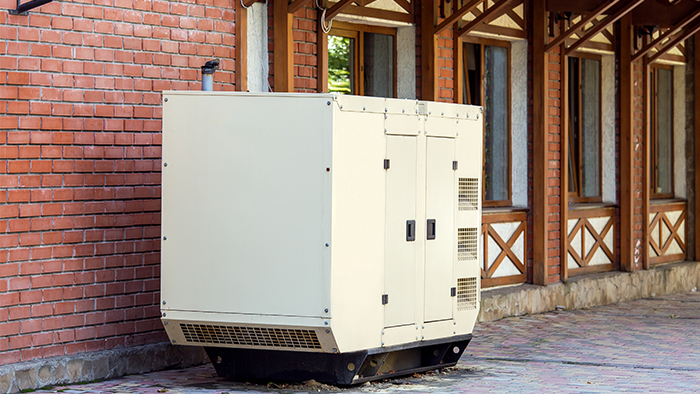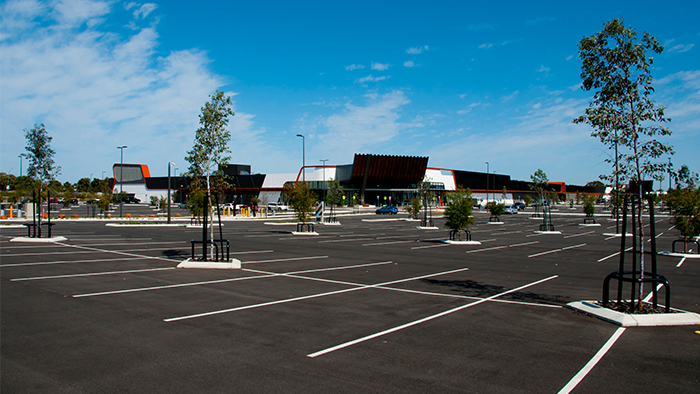Store Operations
This area covers the operations side of retail. This includes a wide range of facility and property maintenance operations such as HVAC and refrigeration systems, recycling and waste management, receiving, kitchens, restrooms, wastewater, and outside grounds (parking lots and landscaping). It also includes emergency procedures for preventing and responding to releases of potentially hazardous materials and store-wide regulatory issues such as consumer bag bans and requirements.
COMPLIANCE CONSIDERATIONS
Program Management
Retailers must meet numerous environmental requirements and face potentially large liabilities and brand risks for poor environmental management. A comprehensive management program can help retailers meet their compliance obligations, make their environmental programs more effective, and possibly save money. The RCC Compliance Leadership Model (CLM) lays out the framework for a comprehensive program. A related approach is an Environmental Management System (EMS), which is a widely accepted systematic approach to improving an organization's environmental compliance and reducing environmental impacts. In addition, an Environmental Management Information System (an IT system for managing and tracking environmental requirements) can be a critical tool for managing requirements at hundreds or thousands of facilities across multiple states and hundreds of local jurisdictions.
The RCC has developed an EMS designed for retail. Visit the Retail EMS Guidance page for more information.
Facility Maintenance
Maintenance activities at a retail site consist of managing the physical facility, such as mechanical rooms, the store interior, refrigeration units, and more. Environmental and compliance issues associated with maintenance include pest management, waste from maintenance and construction activities, lighting and re-lamping, HVAC and refrigeration system maintenance, and storage of hazardous materials.
Maintenance Waste
Common maintenance wastes that need special management as universal wastes include spent halogen, High Intensity Discharge (HID), and fluorescent bulbs, batteries, and mercury-containing thermostats. These waste items need to be stored in closed containers, which generally must be labeled with the facility name and address, the words "Universal Waste," the type of contents, and the accumulation start date. For more information on universal waste, visit RCC Hazardous Waste page.
Tritium exit signs, a type of self-luminous exit signs, contain a radioactive form of hydrogen. These signs cannot be put in the regular trash and require special recordkeeping, handling, and disposal using companies licensed by the Nuclear Regulatory Commission (NRC), which has more information about these signs.
Hazardous Materials and Emergency Preparedness
Several agencies regulate the storage of hazardous materials at facilities either for facility maintenance or for sale to customers. EPA has maintains a list of chemicals subject to the Emergency Planning and Community Right-to-Know Act (EPCRA), the Comprehensive Environmental Response, Compensation, and Liability Act (CERCLA), and Section 112(r) of the Clean Air Act. Other agencies with jurisdiction over the storage of hazardous materials include state fire marshals, local fire departments, and state and local emergency planning agencies.
Under EPCRA there are a number of requirements for facilities that use or store any "hazardous chemicals," which are defined as "substances for which a facility must maintain a Safety Data Sheet (SDS) under the OSHA Hazard Communication Standard." Requirements include reporting to the State Emergency Response Commission (SERC), the Local Emergency Planning Committee (LEPC), and the local fire department, as well as making information public.
In retail, stores with battery powered equipment, such as forklifts, personnel lifts, and powered pallet jacks, may be subject to Tier II reporting under EPCRA if the aggregate weight of sulfuric acid in the lead acid batteries exceeds the reporting threshold. Other hazardous materials that could trigger Tier II reporting include (but are not limited to) gasoline, diesel fuel, propane, LP gas, and other compressed gases. The EPA provides guidance on Tier II reporting.
Boilers
Commercial or institutional boilers (for example, boilers at a distribution center or a large department store) that burn fuels such as coal, oil, or biomass may be regulated under 40 CFR Part 63, Subpart JJJJJJ (under the Clean Air Act). There may also be regulations, including permit requirements, at the state level. EPA has information on boiler compliance, and the RCC Air page has more detail.
Emergency Generators
EPA and some states regulate emergency generator emissions as well as any associated fuel tanks. The RCC Fact Sheet on emergency generators has more information and the RCC Emergency Generator Permitting Matrix has information on state permitting requirements.

Emergency Generator Permitting Matrix
View Matrix
Emergency Generator Fact Sheet
View Fact SheetPest Management
Pest management should follow an Integrated Pest Management (IPM) approach to eliminate pests while minimizing the use of toxic pesticides. Consider vendors that use IPM approaches rather than ones who rely exclusively on pesticides. State and local jurisdictions may regulate pesticide use and have requirements such as notification, signage, and/or licensing and certification for pest control companies. The National Pesticide Information Center has information on pesticide use and state requirements.
Most retailers use outside service providers for pest management. However, if pest management is conducted internally, be aware that there may be requirements for certified applicators and that state and local jurisdictions may have additional restrictions. Also, in addition to understanding legal requirements, make sure to follow correct management practices and to properly handle any waste generated.
Air Conditioning and Refrigeration Unit Management
Refrigeration, Air Conditioning and Refrigerated Transportation use refrigerants that may contain chlorofluorocarbons (CFCs), hydrochlorofluorocarbons (HCFCs), or other ozone depleting substances (ODSs). Title VI of the Clean Air Act has requirements that may apply to retailers who have large refrigerators/freezers, air conditioning units, or refrigerated transportation. The RCC Refrigerant Fact Sheet has more information on specific requirements.
Refrigerant Fact Sheet
View Fact SheetHazardous Waste
Many items used for cleanup and maintenance of retail stores (for example, bleach or detergents) or products returned, expired, recalled, or damaged at the store have the potential to be hazardous waste, and the facility managers are usually responsible for managing this waste. Do not throw away containers with product still in them as, depending on the product, this could be considered disposal of a hazardous waste. Improper disposal of hazardous products, such as by pouring them down the drain, onto the ground, into storm drains, or putting them into the trash, can be potentially dangerous and against the law. State and local regulations can differ from federal requirements, so it is important to always check the rules in a store's jurisdiction. For more information, visit the RCC Hazardous Waste page.
Storage Tank Management
Storage tanks at retail facilities are typically for the storage of petroleum products. These tanks are regulated at the federal, state, and local levels with a number of requirements related to spill prevention, operations, training, and more. The RCC Tank page has more information.
Building Exteriors and Parking Lots

The main issues associated with the building exterior and surrounding area are stormwater, landscaping, and spill prevention and response.
Stormwater runoff from parking lots and building rooftops (often called nonpoint pollution) is subject to a number of requirements which can include permits. In addition, stormwater control features require maintenance in order to perform correctly. The RCC Water page has more information.
Environmental issues associated with landscaping include water and pesticide use (which is discussed above), as well as environmental impacts from power equipment. Water use may be restricted in some jurisdictions. Landscaping can be designed for low or no watering, which can also reduce maintenance, save energy, and reduce air pollution.
In case of an accidental spill or release of petroleum (from automobiles or delivery trucks), cleanup activities should follow spill cleanup procedures along the lines discussed in the RCC Gasoline and Fuel Dealers page.
Receiving & Distribution (Hazardous Material Handling)
Items that may qualify as hazardous materials must be properly handled during shipping and receiving.
The shipper is responsible for ensuring that all hazardous materials are properly identified, classified, packaged, marked, labeled, and documented. The Hazardous Materials Regulations (HMR) are rules issued by the Department of Transportation's Pipeline and Hazardous Materials Safety Administration (PHMSA) for shipping products that are considered to be hazardous materials. These materials include, but are not limited to, items that are explosive, flammable, radioactive, corrosive, water reactive, gaseous, or poisonous. The regulations include a table of hazardous materials, which is available on the PHMSA website. The regulations define requirements for classification, packaging, hazard communication, shipping documents, security, incident reporting, handling, and transportation of hazardous materials. All employees who are involved in the transport of hazardous materials (including loading and unloading) must have training every three years.
The RCC Hazardous Materials Transportation page has more information on shipping and labelling hazardous materials.
Solid Waste and Recycling
The federal government relies on state and local governments to regulate (non-hazardous) solid waste management, including recycling. The RCC Other Regulated Waste page has more information on municipal solid waste, food waste, etc.
Material Requirements -- Bags
Consumer Bag Legislation Summary Matrix
View MatrixMany states and local jurisdictions have or are developing regulations to reduce plastic carry-out bags in an effort to keep the bags out of landfills, from roadside litter, and out of streams, lakes and oceans. This legislation can include outright bans on plastic bags, require stores to establish at-store recycling programs, or establish a fee for bags at the cash register. The RCC has a matrix of state and local consumer bag requirements. The RCC also has a consumer bag FAQ that details common questions posed by retailers on consumer bag legislation.
Polystyrene Requirements

A number of local jurisdictions ban or limit the use of polystyrene food packaging (usually for expanded polystyrene (EPS) or Styrofoam) because this material does not break down naturally, is not economical to recycle, and can be expensive to clean up from water and land. Some regulations also require takeout food packaging to be compostable or recyclable. The Surfrider Foundation has a list of such ordinances.
SUSTAINABILITY
Retailers can take a number of steps to be more sustainable in their store operations, such as installing low-flow water fixtures like toilets and sinks, using Energy Star rated appliances, and using high efficiency lighting like LEDs or CFLs.
Green Building practices for new or existing buildings can have economic, environmental, and social benefits. The green building certification program, Leadership in Energy & Environmental Design, better known as LEED, has a LEED for Retail rating system that recognizes the unique nature of retail facilities.
Retailers can use the RCC Retail Sustainability Leadership Model to identify and implement more sustainable practices and the Energy Management Leadership Model as a roadmap to optimize energy programs.
Related Content
Emergency Generator Permitting Matrix
State-by-state summary of permitting options and exemptions for emergency generators, including general permits and construction operation permits.
Refrigerant Fact Sheet
Covers air regulations and management requirements that apply in retail covering refrigeration and A/C equipment and ammonia refrigeration systems.
Consumer Bag Legislation Summary Matrix
Summary of consumer bag legislation by state and local jurisdictions, including bans, fees, and specifications for different kinds of allowable bags.
Emergency Generator Fact Sheet
Detailed look at emergency generator air regulations including regulatory requirements and federal compliance options.
Energy Management
Tools and resources to help retail energy managers optimize their programs and reach their set goals.
Tags
-
Air
-
Energy
-
Hazardous Waste
-
Pesticides
-
Program Management
-
Solid Waste
-
Storage Tanks
-
Water
-
Overview



